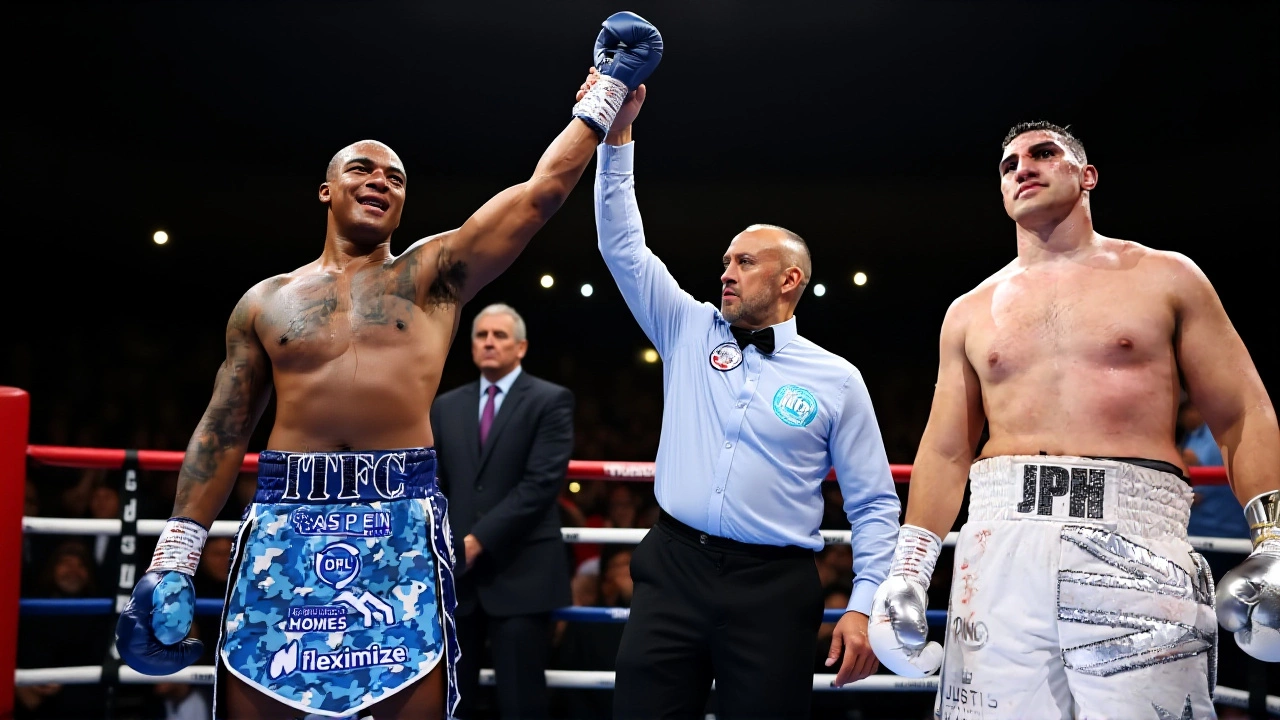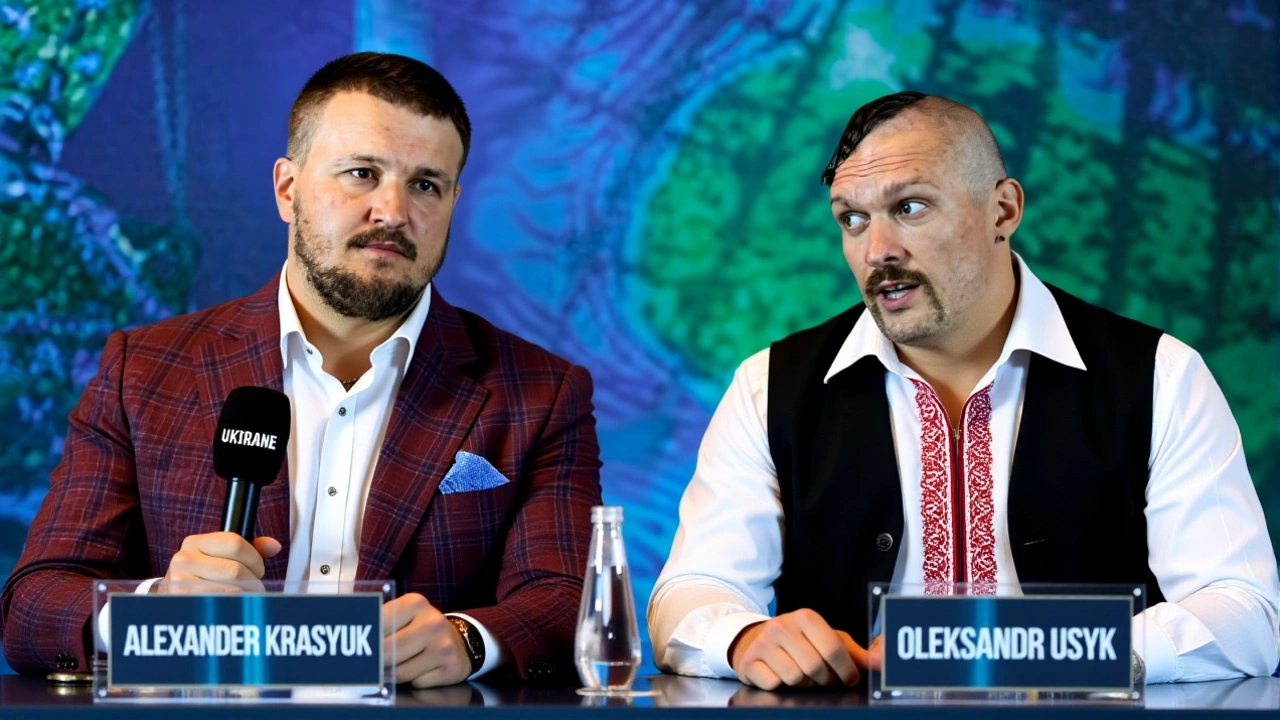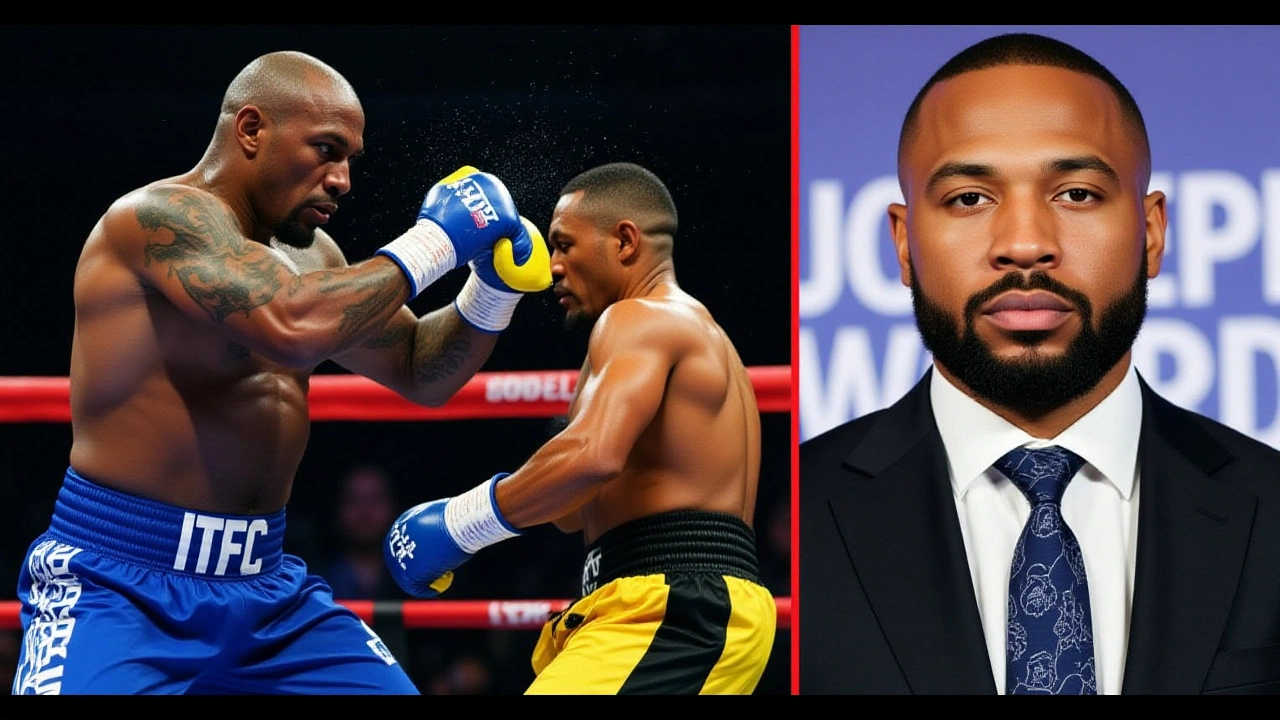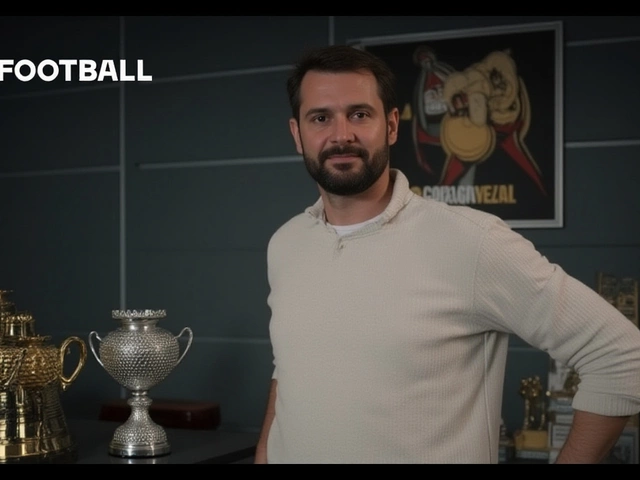Former WBO heavyweight champion Joseph Parker is facing a possible two-year suspension after testing positive for cocaine in a routine anti-doping test conducted the day of his October 25, 2024, bout against Fabio Wardley at the O2 Arena in London. The result, confirmed by the Voluntary Anti-Doping Association (VADA), stunned the boxing world—not because Parker was suspected of using performance-enhancers, but because cocaine, while banned, isn’t used to boost strength or endurance. It’s a recreational drug. And that’s what makes this case so complicated.
What Happened the Night of the Fight
On October 25, 2024, Parker, 32, entered the ring at the O2 Arena with a 34-2 record, riding a six-fight winning streak after his devastating 2022 loss to Joe Joyce. He was the WBO’s mandatory challenger, one win away from a shot at undisputed champion Oleksandr Usyk. Wardley, 34, was undefeated at 19-0-1 and coming off a dominant win over Justis Huni at the same venue. The fight was electric. Parker was ahead on all three scorecards through 10 rounds. Then, in round 11, Wardley landed a brutal body shot that dropped Parker. He beat the count, but the referee stopped the fight. Wardley improved to 20-0-1 with 16 KOs. The crowd roared. Parker, visibly shaken, hugged his opponent. No one knew then that the real drama was still to come.
The Test and the Statement
The VADA test, administered pre-fight as part of Parker’s voluntary agreement to enhanced screening, came back positive for cocaine metabolites. VADA, a Colorado-based nonprofit that follows WADA protocols, doesn’t make sanctions—it reports findings. The news broke on November 14, 2024, when The Irish Sun first reported the adverse result. Two days later, Parker posted a statement on Instagram: "I did not take any prohibited substance. I do not support their use... I am confident the investigation will clear my name." His promoter, Queensberry Promotions, issued a terse confirmation, stating they were "cooperating fully" but would make no further comment until the B-sample results were in.
Why Cocaine? The Real Question
Here’s the twist: cocaine isn’t a performance-enhancing drug. It’s a stimulant, yes—but in boxing, it doesn’t make you stronger, faster, or more durable. What it can do is mask fatigue, reduce anxiety, or blunt emotional pain. Parker, who’s been open about the mental toll of his career, has faced public scrutiny before. His 2022 loss to Joyce was brutal. He lost his title, his confidence, and nearly his career. He came back with a new trainer, a new focus, and six wins. Was this a one-time lapse? A moment of poor judgment after a grueling training camp? Or something deeper? The boxing community is divided. Some say it’s a cry for help. Others, including veteran promoter Frank Warren (founder of Queensberry), have stayed silent—unusual for someone who’s spent decades managing high-profile fighters.

The Process and the Penalty
Under VADA rules, Parker has 10 business days to request a B-sample test—the second vial collected during the same draw. If it confirms the result, a two-year ban is standard under WADA guidelines. That would sideline him until at least October 2026, effectively ending his title hopes. But here’s what’s rarely discussed: the ban isn’t automatic. Athletes can appeal, especially if they can prove the substance was ingested outside competition and without intent to enhance performance. In 2018, British boxer David Price received a reduced six-month suspension after proving cocaine use was recreational and unrelated to competition. Parker’s legal team will likely argue the same. But the burden of proof is on him.
Who Benefits? Wardley’s Path Forward
Meanwhile, Fabio Wardley stands at a crossroads. He’s now the WBO’s top contender. But with Parker’s status in limbo, the WBO may delay any title challenge until the doping case is resolved. Some insiders suggest Wardley could face Oleksandr Usyk as early as next summer—if Usyk opts to defend his belts before a potential unification bout with Tyson Fury. Others believe Wardley deserves a rematch with Parker once the investigation concludes. "It’s not just about who’s next," said one WBO official, speaking off-record. "It’s about integrity. And we won’t rush this."

What This Means for Boxing
This isn’t the first time a boxer has tested positive for cocaine. But it’s rare for a former world champion, especially one who’s rebuilt his career after near-retirement, to be caught in this way. It raises uncomfortable questions: Is the sport doing enough to support fighters’ mental health? Are the testing protocols too focused on steroids and not enough on psychological stressors? And why, in a sport where fighters often fight through injuries and grief, do we still treat recreational drug use as a moral failing rather than a public health issue?
The answer won’t come from VADA or the British Boxing Board of Control. It’ll come from how the public, the promoters, and the fans respond. Will Parker be given a second chance? Or will this be the end of a career that once promised to unite New Zealand and the world heavyweight scene?
Frequently Asked Questions
Why is cocaine banned in boxing if it doesn’t enhance performance?
Cocaine is banned under WADA’s Prohibited List because it’s considered a "specifiable substance"—meaning it can be used for non-performance reasons like masking fatigue or reducing anxiety. While it doesn’t build muscle or increase strength, its stimulant effects can alter judgment, increase risk-taking, and impair recovery. The ban aims to protect athlete health and ensure fair competition, not just to target doping for gain.
What happens if Parker’s B-sample is negative?
If the B-sample confirms no cocaine, the adverse finding is voided, and Parker faces no sanctions. He can immediately resume training and pursue a title shot. VADA has a 99.8% accuracy rate when both A and B samples are matched, but contamination or lab error—though rare—has happened before. Parker’s team will scrutinize every step of the chain of custody.
Could Wardley still fight Usyk even if Parker is cleared?
Absolutely. Wardley’s win over Parker made him the mandatory challenger, regardless of Parker’s status. If Parker is cleared, the WBO may still honor Wardley’s position unless they decide to reorder rankings based on recent activity. Usyk’s team has shown no interest in rematches and prefers to move to unification bouts. Wardley is now the clear next in line.
Has Parker ever failed a drug test before?
No. Parker has never tested positive in any of his 36 professional bouts. He voluntarily submitted to VADA testing for years, including before his 2018 title loss to Andy Ruiz Jr. His clean record made this result even more shocking to fans and insiders alike. His team has emphasized his long-standing commitment to clean sport.
How long will it take to get B-sample results?
VADA typically processes B-sample tests within 7 to 14 days after receiving the request. Parker’s legal team has until November 29, 2024, to formally request the B-sample analysis. Once submitted, the lab in Colorado will conduct a second analysis using the same sample, and results are usually confirmed within five business days after receipt.
What’s the impact on New Zealand boxing?
Parker was New Zealand’s most successful heavyweight since David Tua. His career inspired a generation of Kiwi boxers. A suspension would be a blow to national pride, but his honesty in addressing the issue publicly has earned him some sympathy. The New Zealand Boxing Association has not issued a statement, but insiders say they’re monitoring the case closely, aware that how it’s handled could shape future anti-doping policies in the country.





